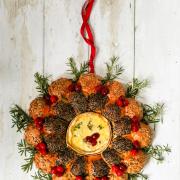Meet the dedicated bee keepers of Waveney Valley Words and pictures by Julian Claxton

Nestled deep in the Waveney Valley, this gorgeous, almost untouched part of Suffolk is home to Waveney Valley Bee Keepers.
Their substantial, rather fine premises are surrounded by fields of wheat, delicately thatched houses and old farm buildings, creating a sense of yesteryear.
Bee keeping books line the shelves, crafted wooden hives perch in the corner of the room, keepers’ suits hang in the back while plastic buckets sit laden with fresh honey, looking rather scrumptious, making my mouth water in anticipation of what I hope will follow later on.
“This is what we do as bee keepers,” explains Bob Spruce, chairman. “The art of making honey requires a big colony of bees – and I mean a lot.” To illustrate the point, Bob goes on to explain that in its lifetime a bee typically produces only half a teaspoon of honey. Colonies typically contain around 80,000 bees and in the summer months they can last as little as just six weeks, an incredibly short lifespan.

Becoming a bee keeper doesn’t happen overnight – it takes time, knowledge and patience. Bob first starting looking after bees more than 55 years ago when he was at school. “We used to have hives in the school grounds and I would help the gardener look after them. I would get out of lessons, thoroughly enjoying the excitement of caring for the little creatures. It took a while, but I gradually began to understand them and harvest honey.”
Waveney Bee Keepers is part of a wider Suffolk association under the umbrella of the Suffolk Bee Keepers Association, a thriving community of around 600 bee keepers throughout the county. As well as helpful drop-in sessions, designed for information and guidance, Bob and his fellow committee members offer some superb affordable courses. The beginners’ course is based around seven two-hour sessions, covering all the basics, from eggs, the brood, how to care for your bees and building a hive. In the past demand has been so high that additional sessions have been provided.
“We have all ages come to our courses, it is a real eclectic mix of people,” says Bob. “One of the most satisfying was a lady in her eighties who decided she wanted to keep bees. She learnt what to do and now has two very successful hives.
“It’s lovely when former students return with their honey and a smile on their face.”

The group holds occasional blind tasting sessions, inviting members to bring a jar of their honey for some friendly competition. “The variety, quality and all around flavour of the honey is astonishing. It is fascinating, but also great fun. Occasionally someone might throw a red herring and drop in some supermarket honey, but we tend to weed this out pretty quick,” says Bob with a laugh.
To my untrained eye the hives look rather large, although given that there thousands of bees in one hive, I suppose that puts it into some context.
“Bees need space,” says Bob. “If they haven’t got room it’s like having 10 kids in a room on a rainy day.” Gently lifting the top from the handcrafted hive, Bob explains that most of the bees in the UK are now looked after by amateur beekeepers, which is good news. With the vast majority of people only wanting two hives as a hobby, it means that most towns or villages usually have a couple of hives.
Wild bees in the UK have all but died out, mainly due to varroa mite, a parasitic mite that attacks the honey bee. Thankfully, the work of the nation’s bee keepers is keeping the mites under control, as dedicated people like Bob share their knowledge and help people keep on top of the problem.
Bob maintains 16 sites from Poringland in Norfolk to Halesworth – that’s more than 1 million bees.
“It’s a lot of work, but really enjoyable,” he says.



























